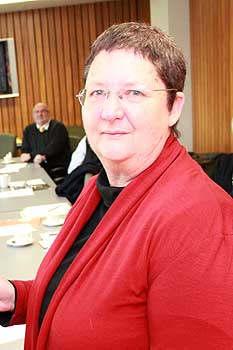Glenn's philanthropy an opportunity to work together, bring change and stop child abuse

Owen Glenn’s pledge to contribute $80 million to addressing child abuse and family violence and fund a Commission of Inquiry will come as a welcome relief to a sector overburdened with work and under-resourced.
Glenn’s focus on strengthening communities fits well with current policy and what we know about what works and what doesn’t to stop violence in our homes, though most of us would admit we don’t know enough.
Education is at the heart of Glenn’s approach to the issues, and he’s right that we need to learn more about how to mobilise in our communities to prevent harm to our children. A Commission of Inquiry also fits with the strategy of improving our knowledge-base and extending opportunities for education on the issues.
Glenn has proposed the inquiry, and been drawn to the problem of violence at home, because the New Zealand statistics on violence against children and in families is “a national embarrassment”. For instance, New Zealand police attend a family violence incident every six minutes, on average, yet research shows that only about 20% of all family violence incidents are reported to police. About half the murders that police investigate are the result of family violence.
Those working in the field know that behind those statistics are children, parents, women and men whose experiences of violence are heartbreakingly hard to listen to, and work with. The sector faces a social crisis every day, and the everyday tragedies of the job can be wearing. On the whole, we’re becoming more aware of the crisis and the need for interventions.
The Government-run Campaign for Action on Family Violence has been spreading the word that violence at home is not O.K., and encouraging people to do something if they know a child is at risk. The successful actions that improve the chances of getting someone to safety rarely make the news; the things that go wrong and bring harm to the person intervening will likely make headlines.
It’s possible that a Commission of Inquiry would bring to light many stories of courage and tenacity within families and communities where successful interventions lead to a safer home. Those working in the field know these stories, but rarely have the opportunity to draw them together, analyse them and promote the actions that were taken as best practice for interventions.
Disappointingly, John Key’s initial response to Glenn’s announcement didn’t welcome the idea of a formal Commission of Inquiry. He’s said he’ll need to take advice before deciding whether or not it’s needed. The contradiction in Key’s approach is his assumption that an inquiry is fundamentally the Government’s decision; but Government policy has long advocated community responsibility for the interventions that address family violence, and the Key Government hasn’t prioritised the problem in its own sector.
If Key intends to seek advice, then he needs to listen to those in our communities who are currently taking responsibility for the problem. He also needs to accept that we might decide for ourselves whether or not to accept Glenn’s offer. After all, it’s our responsibility.
An inquiry would be a unique opportunity for all those working in the sector, and those affected by violence in their homes, to speak out and be heard. It’s not O.K. to welcome money for the sector’s community-based actions, but not for the inquiry process that could better inform the actions we take.
Community agencies are strapped for funding, and for evidence of best practice, and they’re often competing for the little money available publically and privately. Yet among us, we’ve not resolved some fundamental questions about the nature of the problem or best way to prevent violence. At times it seems like we don’t even agree about what we mean by violence and abuse.
None of these are new problems; like the violence itself they’ve been around a long time, with little resource for sorting them, and a longstanding reluctance to face up to how serious and extensive they are. We could definitely use the boost that Glenn proposes to give for intervention projects, and for answering some enduring questions.
Stopping child abuse needs us to work together. That sounds easy, but it isn’t: money often tends to become divisive among those who don’t have much and we’re not agreed on why violence at home is so hard to stop. Solutions rarely make the news.
Glenn’s philanthropy is an opportunity for us to work out how to act together. A privately-funded Commission of Inquiry into the problem isn’t necessarily an empty gesture intended to point blame. It could be a good starting place for the broadest possible collaboration to bring about change.
Associate Professor Mandy Morgan is head of Massey’s School of Psychology